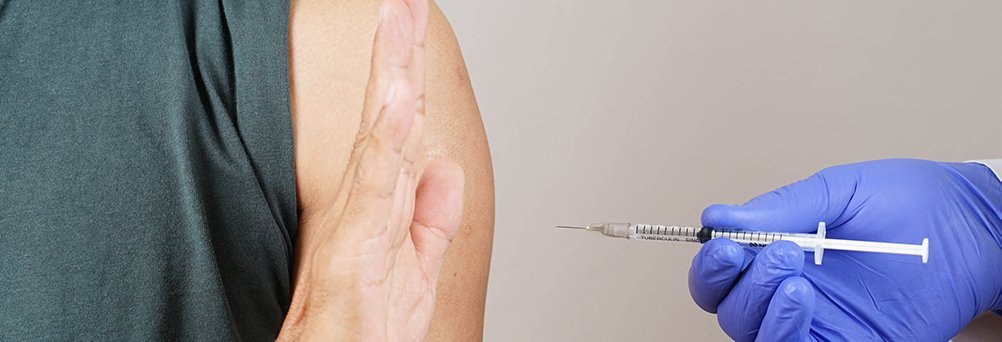Many Americans reject vaccine mandates of any kind, but at the same time few support evading them by using a fake vaccination certificate.
In the latest Economist/YouGov Poll, most American adults say that it is unacceptable to use a fake vaccination certificate to eat in a restaurant, to attend a concert or to keep a job. Republicans, 70% of whom oppose requiring vaccination in each of these cases, also say they find it unacceptable to use fake vaccine cards to bypass vaccination requirements in these cases. Americans who are not vaccinated themselves also say they don’t accept using fake vaccination certificates.
On this question, there’s little difference by political party, but there is a gender gap. For each potential use of a fake vaccination card that was polled, men were 10 points more likely than women to say it is acceptable to use faked evidence of vaccination to avoid vaccine mandates. For example, 27% of men but just 17% of women say it is acceptable to use a fake certificate of vaccination to keep a job.
Almost no Americans say they have a fake vaccination certificate themselves, and just 6% of American adults say they know someone who does. American adults under 30 are the most likely to say they know someone with a fake certificate, but only 12% of them do. Just 1% of Americans 65 and older say they know anyone with a fake vaccination card, and that person is likely to be an acquaintance, not a close friend or family member.
People who say they know someone who is not vaccinated against COVID-19 are more likely to be understanding of reasons not to get vaccinated — which could mean knowing someone who made a choice increases understanding, or that increased understanding of a choice makes it more likely someone will disclose that choice.
Three in four adults say they know at least one person who has not been vaccinated (one in three say they are not yet vaccinated themselves). Republicans are somewhat more likely to say they know people who are unvaccinated and are 24 percentage points less likely than Democrats to be vaccinated themselves. Americans who say they know an unvaccinated person mostly say they either understand a person’s decision not to get vaccinated or agree with that decision. Americans who say they don’t know any unvaccinated person mostly say they neither agree with nor understand why people are not vaccinated.
There is another case of vaccine-related lying, in order to receive an injection rather than to avoid one. Most Americans also call it acceptable to do this form of lying: about a medical condition to get a booster vaccine shot before becoming eligible. Six in ten Americans who are fully vaccinated intend to get a booster; another 10% already have gotten one. But just 18% of all Americans say it is acceptable to lie about a medical condition to receive a booster. A greater share — 30% — of people who have already received a booster find it acceptable to lie to get one, and it is possible some of them may have already done that.
Democrats are a little more likely than Republicans (22% to 15%) to say they find lying for a booster acceptable; college graduates also are somewhat more likely to condone doing this. But majorities of all groups say they find this behavior unacceptable.
See the toplines and crosstabs from this Economist/YouGov Poll
Methodology: The Economist survey was conducted by YouGov using a nationally representative sample of 1,500 U.S. adult citizens interviewed online between October 16 - 19, 2021. This sample was weighted according to gender, age, race, and education based on the 2018 American Community Survey, conducted by the U.S. Census Bureau, as well as 2020 Presidential vote. Respondents were selected from YouGov’s opt-in panel to be representative of all U.S. citizens. The margin of error is approximately 3% for the overall sample.
Image: Getty








